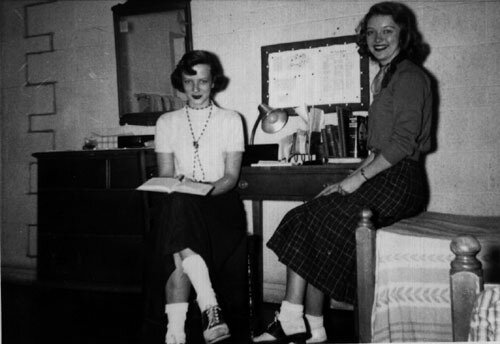
EXHIBIT
FINDING
A WOMAN'S PLACE AT VIRGINIA TECH 1921-2021
EDIT PER EXHIBIT In this exhibit you can explore the different phases of Solitude’s history. We begin during the period when this place was indigenous land, and go on to explore its history as a slave plantation in the nineteenth century.
LOSING GROUND—MERGER WITH RADFORD COLLEGE 1944-1964
During the merger, students were bused between campuses. The women of Radford College seemed to benefit from the merger because they had access to classes at VPI that were not offered at Radford.


















